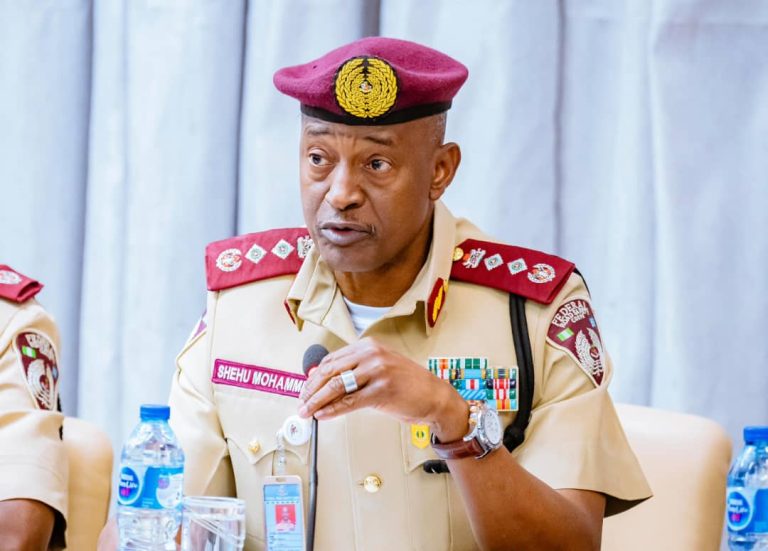By Ibironke Ariyo
As Nigeria marks President Bola Ahmed Tinubu’s second year in office, the Federal Road Safety Corps (FRSC) has commended the administration for strengthening road safety operations through increased funding, technological upgrades, and strategic policy support.
Speaking in Abuja on Wednesday, Corps Marshal Shehu Mohammed revealed that the Tinubu-led government has significantly improved the FRSC’s operational scope by authorizing nationwide night patrols and enabling advanced safety systems.
“This administration has demonstrated unprecedented support in both funding and policy, aligning with the global mission to reduce road traffic incidents and enhance public safety,” Mohammed stated.
Mohammed noted that one of the administration’s most impactful directives was the approval for the FRSC to resume full-scale night patrols. He explained that analysis had shown a spike in road crashes and fatalities during nighttime hours.
“The President’s directive came from a place of understanding. Nighttime accounts for a majority of serious crashes. Resuming patrols during these critical hours will allow us to respond faster and prevent incidents,” he explained.
The Corps Marshal disclosed that road crashes have declined by approximately 10% in the first half of 2024, a development he attributed to increased surveillance, better-trained personnel, and the deployment of real-time monitoring technology. However, he raised concerns over rising fatalities, often resulting from dangerous activities following accidents.
“Most of the deaths occur after the initial crash, especially when bystanders attempt to scoop fuel from fallen tankers. These secondary events are what often lead to mass casualties,” he warned.
Mohammed outlined two key technological innovations introduced by the FRSC in the last year. The first is a mobile application that monitors vehicle speed and alerts both drivers and passengers when set limits are exceeded. The app also provides real-time warnings about black spots, sharp bends, and potholes along routes.
“The application is user-friendly and continually updated to reflect current road conditions. It is part of our commitment to the Renewed Hope Agenda’s ease-of-doing-business strategy,” he said.
The second innovation is the National Crash Information Reporting System — a unified database that consolidates accident data from various agencies. This new system has addressed long-standing concerns from global organizations like the World Bank and the World Health Organization over the accuracy of Nigeria’s road crash data.
“Now, we have a single, reliable database for crash statistics. This system enhances credibility and allows for better policy development and international collaboration,” Mohammed added.
He also praised the Office of the Secretary to the Government of the Federation, led by Sen. George Akume, for its efficient handling of road safety matters.
“All our correspondences are treated with urgency, and this has significantly improved our ability to execute safety measures nationwide,” he said.
The Corps Marshal revealed that alongside technology upgrades, staff training and infrastructure development have been ongoing. He emphasized that human capital development is a vital pillar of the Corps’ reform strategy under the current administration.
Concluding his remarks, Mohammed urged all Nigerians to adopt safer driving habits and avoid risky behavior, particularly at accident scenes. He stressed that road safety remains a shared duty between the government and the public.
“While we enhance our systems, we also need citizens to cooperate. Road safety is not solely the job of FRSC—it’s a collective responsibility,” he said.



